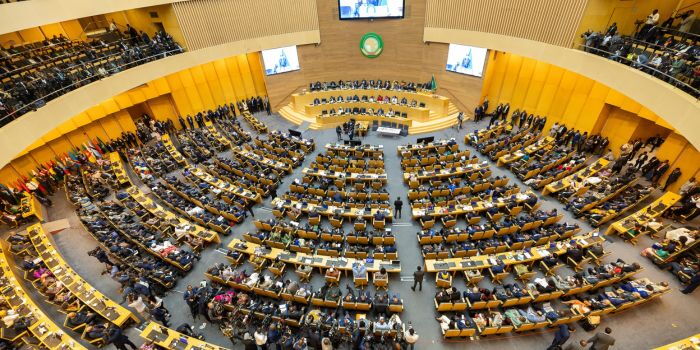The African Union Commission (AUC) has officially responded to a recent and controversial decision by the administration of former U.S. President Donald Trump, which banned nationals from seven African countries from traveling to the United States.
In its statement, the AUC urged the U.S. to engage in dialogue and reconsider the move, warning of the broader implications such action could have on Africa–U.S. relations.
According to the Trump administration, the travel ban — which takes effect on June 9 — applies to Chad, the Republic of the Congo, Equatorial Guinea, Eritrea, Libya, Somalia, and Sudan, citing concerns over national security, terrorism threats, and a high incidence of visa overstays.
These African nations are among 12 countries globally targeted by the ban, which Trump insists is necessary to protect the United States.
However, the African Union strongly disagrees with the approach. In a statement released on Thursday, June 5, the AU Commission cautioned that this sweeping travel restriction could harm decades of growing cooperation and strategic partnership between the U.S. and the African continent.
“The African Union Commission has taken note of the recent proclamation by the Government of the United States imposing new travel restrictions affecting nationals from several countries, including some on the African continent,” read the statement.
While acknowledging that every country has the sovereign right to secure its borders and protect its people, the AUC called on the U.S. to do so in a measured and evidence-based manner, taking into
account the long-standing diplomatic, educational, and trade ties shared between Africa and the United States.
“We urge the United States to apply this right with fairness and due consideration to the positive history of collaboration between the American people and African nations,” the AUC noted.
In addition to the seven countries facing full restrictions, Burundi, Sierra Leone, and Togo have been subjected to partial travel limitations, which affect specific visa categories.
The AU further warned that these restrictions could severely disrupt educational exchanges, international business relations, and diplomatic missions, potentially setting back progress in areas of mutual interest.
The AU also expressed concern over the possible message this sends to young Africans seeking global opportunities in education, technology, and entrepreneurship.
Trump, meanwhile, defended the move in a video posted to his Truth Social platform, referencing a recent terror attack in Boulder, Colorado as justification for tougher vetting processes for foreign nationals.
He argued that the U.S. could no longer take risks with individuals from countries where security vetting is difficult or incomplete.
In its statement, the African Union urged the U.S. to take a more diplomatic and cooperative path, suggesting that sustained engagement and mutual respect were more effective tools for global security and peacebuilding.
The AUC emphasized the need for the U.S. to work closely with African governments and institutions to address shared challenges such as terrorism, illegal migration, and organized crime, rather than imposing unilateral travel bans.
Meanwhile, Kenya has not been affected by the travel ban so far, but it might not be spared for long.
Trump has hinted that the list could be updated to include more countries, and U.S. lawmakers have expressed concern over Kenya’s deepening ties with China, which they claim may warrant a reevaluation of Kenya’s strategic partnership with Washington.
Notably, Senator Jim Risch, chairman of the Senate Foreign Relations Committee, has been vocal about the need to reassess America’s foreign policy priorities in Africa, specifically pointing to countries like Kenya.
This recent ban comes on the heels of another controversial policy from March 2024, where the
Trump administration tightened requirements for U.S. visa and Green Card applicants. As part of the revised immigration policy,
applicants are now required to submit their social media history for background checks, a move that sparked debate globally.
As tensions rise, the African Union is calling for diplomacy to prevail, reminding the U.S. that actions taken without consultation or cooperation risk undermining decades of goodwill, mutual investment, and trust between Africa and the United States.
Join Gen Z New WhatsApp Channel To Stay Updated On time https://whatsapp.com/channel/0029VaWT5gSGufImU8R0DO30


